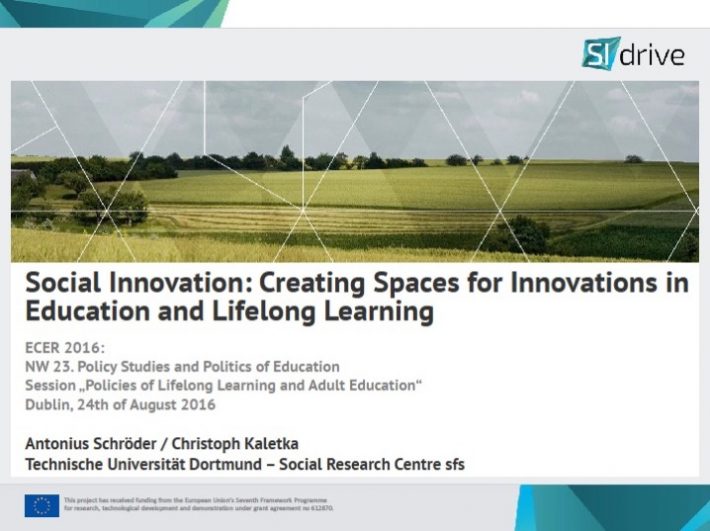At the European Conference on Educational Research ECER 2016 in Dublin with more than 300 participants Antonius Schröder (TUDO) presented the results of the global mapping in relation to the Policy Field “Education and Lifelong Learning” (221 cases in this field all over the world). The main objective of the presentation on 24th August 2016 was to discuss the social innovation concept in the educational policy environment, to find out what and who drives social innovation in the field of education, which stakeholders are doing what and how far educational policies can be barriers or facilitators to innovation. Conclusions from the SI-DRIVE global mapping analysis in the field of education and lifelong learning are stressing that about half of the initiatives are intending systemic change, but political support is missing. There is already a cross-sector collaboration to overcome social demands and societal challenges, involving public, economic and civil society partners (including active user/beneficiary involvement), but this could be done more systematically, in improved eco-systems, compared with new ways for transfer and imitation of new solutions. Anyway, the un- or underdeveloped potential of “Social Innovation” has to be overcome by improving acceptance and increasing understanding and visibility of the social innovation concept. In the field of education by taking the “Lifelong Learning Strategy” and concept serious and foster it by social innovations – putting the learner’s perspective in focus: Solutions for the learners and with the learners!
